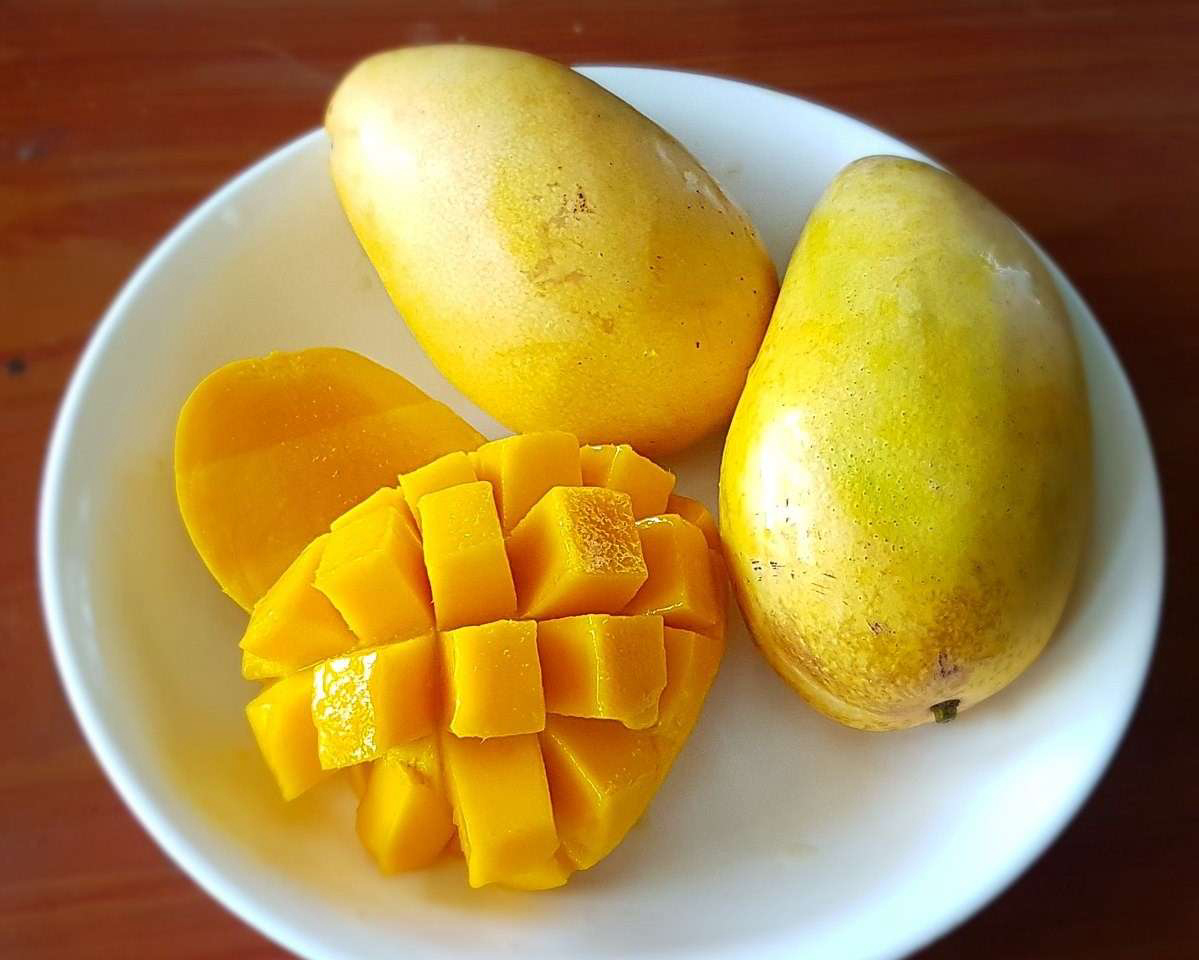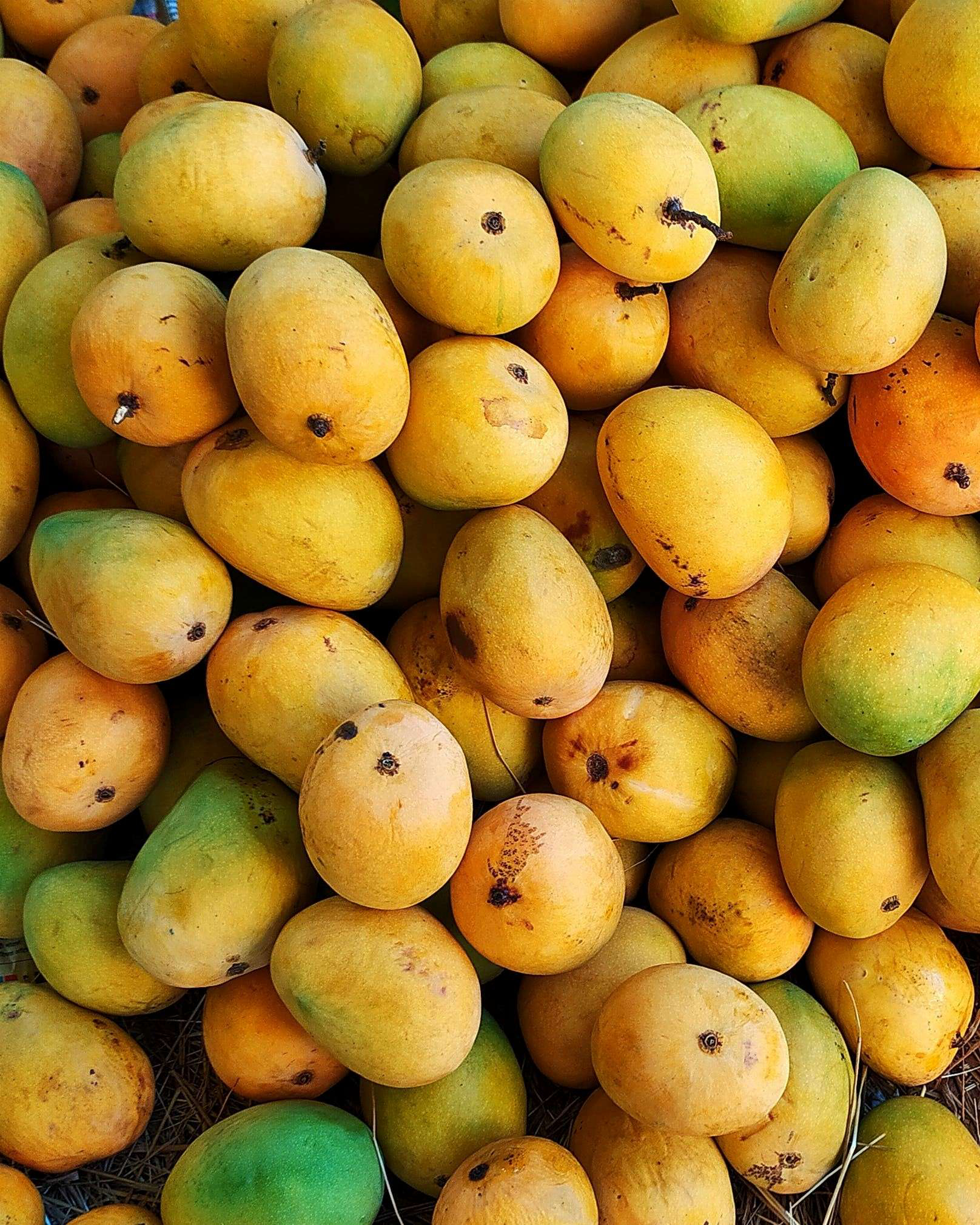
One of the major attractions of the summer season is mango, and this ultimate king of fruits is loved by almost everyone. Mango is native to South Asia and has been cultivated for centuries. These sweet and delicious fruits are adapted and thrived in specific territories only through season sensing similar to the summer-flowering plants. It has many nutritional aspects, but it also has a heat property which is not even reduced after keeping it in the refrigerator. Mangoes belong to the drupe family. They are available in hundreds of varieties around the world in different colors and shapes. Mangoes contain various minerals and vitamins and are among the most nutrient-dense fruits available.
One medium-sized mango contains 3 grams protein, 202 calories, 1 gram of fat, 50 grams carbohydrates, 5 grams fibers, and 45 grams sugar. The vitamins, minerals, and antioxidants in mangoes can provide significant health benefits. For instance, vitamin K found in mangoes helps your blood clot effectively and supports prevent Anemia. It similarly plays a significant role in helping strengthen the bones. Mangoes are likewise rich in vitamin C, which is important for forming blood vessels and healthy collagen, and it can also help in the healing process. Along with all these benefits, there are also some extra benefits and disadvantages of excessively eating mangoes. Some important advantages and disadvantages of mangoes are given below.
Advantages of Eating Mangoes:
1. For a healthy heart:
Mangoes are very helpful for supporting the cardiovascular system of the human body. These fruits are a huge source of magnesium and potassium, both of which are connected to lower blood pressure and a regular pulse. Besides, mangoes are the source of a compound known as Mangiferin, which many studies have suggested may be able to reduce inflammation of the heart in the body.
2. Helps to lower the risk of Cancer:
These fruits are full of beta-carotene, which is a pigment responsible for the yellow-orange color of mangoes. It is an antioxidant, just one of many found in mangoes. The antioxidants in mangoes have been shown to fight free radicals, which can cause damage to your cells and potentially lead to cancer.
3. Improving cholesterol level:
Mango has vitamin C and fiber that reduce the cholesterol level in the human body. The Low-Density-Lipoprotein (LDL) is called bad cholesterol and High-Density-Lipoprotein (HDL) is called good cholesterol. If there is a high amount of LDL cholesterol in the body, then there is a chance of a heart attack. And thus, eating mangoes is good for our heart.
4. Keeps the immune system healthy:
Mango keeps our immune system healthy and it contains Vitamin C and Vitamin A and many kinds of carotenoids. All these nutrients keep our immune system healthy. It also helps stabilize the digestive system. They offer both amylase compounds that can support dissolve other foods in your stomach, by breaking down the difficult starches.
5. For clear skin and healthy eyes:
Mangoes make our skin fresh and it prevents some type of skin damages as well. People likewise make natural face scrub by mixing mango with honey. Mango is full of Vitamin A that keeps our eyes healthy and prevents night blindness. The retina in the eye converts light into signals and it is a vital component of the eye. Two basic nutrients that support the retina to work effectively are zeaxanthin and lutein. These nutrients also act as a sunblock and protect our eyes. Mango is a source of these nutrients.

Disadvantages of excessive mango eating:
1. Digestion related issues:
Mango is a high-fiber fruit. Fiber is good for our digestion system but only if a person eats it in moderate value, and not in an excessive amount. If your intake of this fruit is more than adequate then it will give you some serious constipation and digestion-related problems. And this is one of the biggest disadvantages of eating excessive mangoes.
2. Increases blood sugar level:
Mangoes are high in fructose, and a high amount of fructose in the body means a high amount of sugar. High sugar food should be avoided if a person is diabetic or a sugar patient. Eating mangoes rapidly increase the blood sugar level and increases difficulties for diabetic people.
3. Can cause Diarrhea:
Mango contains much fiber, and excessive fiber can cause diarrhea. Fiber stimulates muscle movement within the large intestine to empty bowels and cause diarrhea. So, if you eat more than the usual amount of mango then you are likely to have diarrhea.
4. Weight gain problems:
Mango is relatively rich in natural sugar. Eating a large number of mangoes can cause weight gain. If you are planning to lose weight, you should avoid eating mangoes because mango contains vitamin C and calories. A medium-sized mango contains a lot of calories and high calories can cause weight gain.
____________________
Reference:
www.naturalfoodseries.com
www.food.ndtv.com
www.healthbeckon.com
